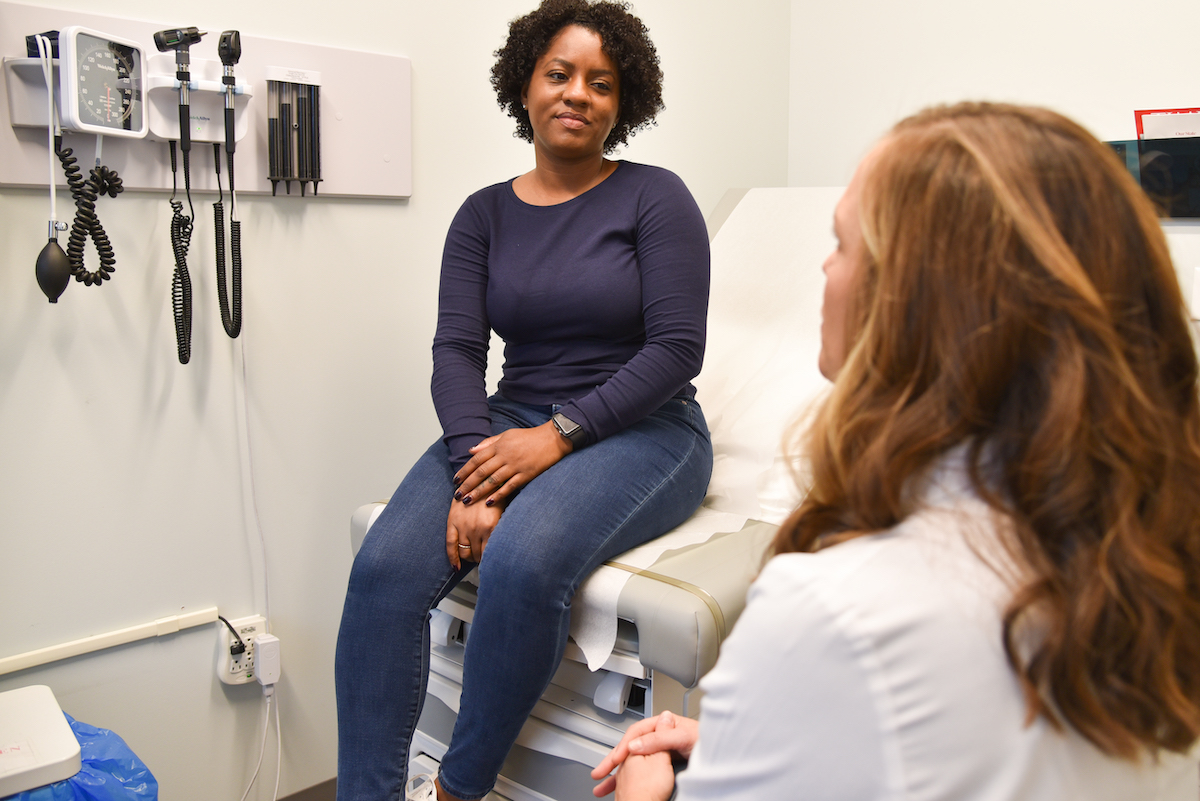
Menopause often comes at a time of joy in your life – you’ve raised your children, hit the height of your career and have new time and energy to dedicate to friends and loved ones. But the weight gain, hot flashes and mood swings of menopause may disrupt an otherwise pleasant chapter. The good news? There are treatments that can help make menopause more comfortable.
Tryon Medical Partners women’s health specialist Dr. Alyse Kelly-Jones sees patients every day to guide them through their most intimate questions about everything from low libido to orgasming and hormone issues. She busts some common myths about hormone therapy, a frontline treatment for many menopause symptoms.
Fiction: There aren’t treatments to help with symptoms of perimenopause and menopause.
Fact: Hormone therapy is a great example of a treatment that can alleviate some of the more painful and disruptive symptoms of menopause. Women produce three major reproductive hormones over their lifetimes: estrogen, progesterone and testosterone. As you near menopause, you begin to slow production of those hormones. Many perimenopausal and menopausal symptoms come from this lack of hormones. Hormone therapy is critical to alleviating uncomfortable symptoms like hot flashes and sleep disturbances.
Fiction: Hormone therapy is similar to hormonal birth control.
Fact: While hormone therapy may seem similar to hormonal birth control because they both provide reproductive hormones, they are quite different because the hormones are different. In birth control pills, there are highly potent synthetic hormones (ethinyl estradiol and progestin) that work to prevent the creation of eggs. If you are going through menopause and placed on hormone therapy, you are receiving a miniscule dose of hormones compared to what’s in a birth control pill.
“With hormone therapy, it’s not as if we start giving you the level of reproductive hormones your body was making when you were 25,” Dr. Kelly-Jones emphasizes. “We’re giving you much less hormone, only enough to help alleviate some of the more uncomfortable symptoms.”
Fiction: Hormone therapy will cause strokes, heart attacks and cancer.
Fact: It is a common misconception that hormone therapy leads to life-threatening health concerns like cardiac arrest and cancer. These concerns largely stem from a study that is more than 20 years old – the negative results of the study received wide publicity, creating panic among some users and new guidance for doctors on prescribing hormone therapy. However, in the following years, new studies showed that the use of hormone therapy in younger women or in early postmenopausal women (50-59 years old) had a beneficial effect on the cardiovascular system.
Although you may fear increasing your risk of developing cancer, hormone therapy doesn’t put women at higher risk than many other common behaviors like drinking alcohol. If you are concerned about increasing your risk for developing cancer, there are ways to engage with hormone therapy that are less risky, depending on your symptoms. For example, local symptoms can often be effectively treated with local vaginal hormones with no increased risk for cancer. It’s also less risky if you begin hormone therapy either under the age of 60 or within ten years of the onset of menopause.
“Nowhere else in medicine do we rely on 20-year-old data to inform our treatment practices,” Dr. Kelly-Jones says. “Diabetes has been managed with new treatments in the last year. Hip replacements are completed on updated guidance from the last two years. Why should menopause be different?”
Fiction: Menopause symptoms pass, so it’s not worth looking into treatment options.
Fact: There are more than 45 symptoms of menopause (including hot flashes, night sweats, trouble sleeping and mood swings) and they may last for years. There are two big steps you can take to improve your quality of life during menopause:
- Educate yourself. It’s worthwhile to seek helpful information about what to expect during menopause through accredited online sources or books.
- Visit the doctor. It’s important to open up a dialogue with a healthcare clinician about menopause. Make sure to find a clinician who is knowledgeable enough about menopause to treat the symptoms effectively.
Our gynecology and sexual health team is ready to provide compassionate fact-based clinical care. Schedule your appointment online or by calling 704-405-3953.

